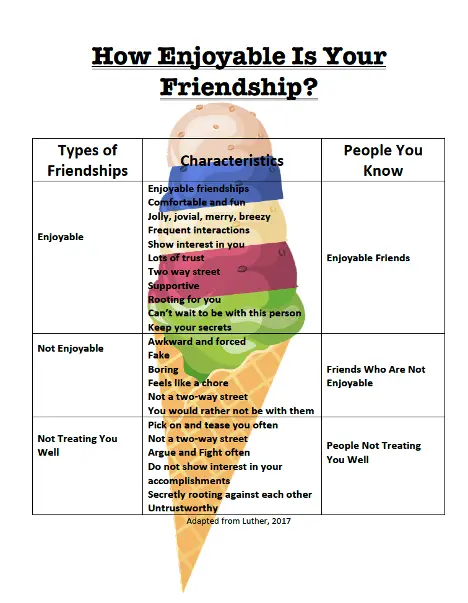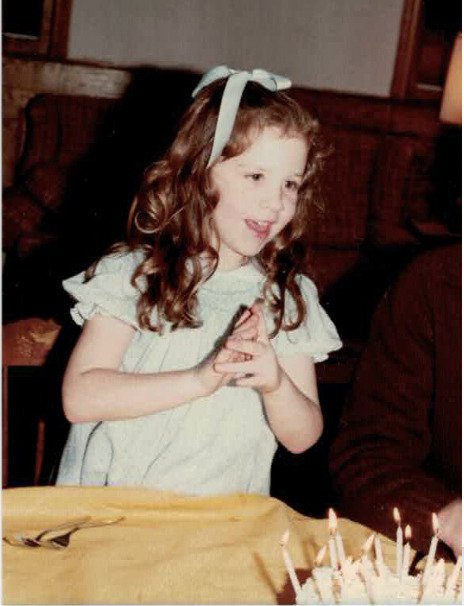Helping Your Teen with A Broken Friendship When They Started Out as Close Friends

Breaking Up is Hard To Do!
It’s heartbreaking. Watching your teen lose a close friend that started out as a close friend. Right now, your son’s peer group is one of the biggest factors influencing his choices and behavior. When a friend that has been a close confident is no longer in your teen’s inner circle, the loss can be devastating.
You probably won’t learn the whole story. They may not even know why what started out as a close friend is now a friend no longer. There are many reasons friendships end. It could have been one-sided, a betrayal of trust, moving into different directions, excessive drama, negativity, etc.
How Can Parents Support a Break Up with a Friend That Started Out as a Close Friend?
Addressing painful topics with your teen can be fraught with landmines. When you approach the topic, he may snip, “This doesn’t concern you!” Your son storms off to his room again and “slam,” the conversation is over.
If there is one thing you can count on as a parent, is that your child will be resistant and oppositional at some point in his life. But what if it happens when there is a possibility of learning from the situation, addressing something serious or even repairing the damage?
So how do you get started?
Getting your child to open up and discuss the loss of a friendship that started out as close friends may happen slowly over a series of open and collaborative conversations. The more you can hear his point of view while trying not to judge, the more you increase your chances of helping your child reflect on his friendships.
The problem is that right now, you don’t have enough information to move forward in a way that would be beneficial for both of you. Start with a series of conversations and build from there. The most important thing for you right now is to keep the line of communication open. By talking to your son about friendship without judgment and harsh restrictions, you are opening up the lines of communication and helping him develop lifelong positive beliefs about what constitutes a good friend.
8 Tips To Consider Before Starting the Tough Conversation About Addressing a Loss that Started Out as Close Friends:
Choose the location –
Think about your teen’s mood and environment. Find a time when your teen is comfortable and in a good mood. A more private setting, without siblings, might be just what they need to feel comfortable opening up.
Hold back your feelings, listen more –
Your teen will open up more if they feel heard. By holding back judgment, you are creating a safe atmosphere that will allow them to talk more freely and avoid the “big divide” between the parent and child.
Reflect, clarify, be curious and gain perspective –
One of the hardest parts of being a teen is thinking that nobody understands you. By understanding your teen’s perspective, you are inviting them to open up more. Step into your teen’s son’s shoes and hear their perspective. Help them work through the timeline of what started out as close friends. Paraphrase what your teen says and then repeat it back. When you do this, you show empathy, and you can clarify their concerns. Be curious and ask questions.
Evaluate friendships –
What is more valuable than having good friends who love and support you for who you are? Talking about social challenges is never easy. For most parents, the dread of how to begin keeps us from having the conversation at all. Work together to figure out what makes a good friend, and talk about how they can be there for their friends when they are needed most.
Read 15 Phrases to Spark a Conversation about Social Dilemmas

Promote respectful tone and banter –
We all have times when our tone does not reflect our intentions. Chances are you have used that tone of voice. Model using a tone that communicates respect, when humanly possible. Be sure to share with your children what respectful looks like and admit it when you struggle. Consider a reminder or code word that family members can use when “the tone” is used. Eventually, you will catch it before you will need to be told.
Don’t impose your family values or goals on the situation –
Keep your agenda, values and goals in mind as you continue to talk through the importance of friendship. Do not assume you understand the reasons for the break up. The end goal is to keep your teen talking. Show them that you are confident that they are able to learn, grow and make good choices.
Use Open Questions –
As an effective method to improve a child’s self-awareness and break down the resistance barrier, this style of questioning allows the parent to lead the child through a process to look at their own feelings and those of others. It provides the teen with perspective to be able to examine your teen’s behavior and choices.
Brainstorm together –
Gather information on your teen’s friends and what is going on socially from school, coaches, teachers and others who can observe and share information. Work together to find activities and opportunities to be with the friend or new ones with shared interests and values. Consider setting up a time to meet and spend time with this friend. Maturity may be an issue. Consider helping your teen develop life skills that will boost his independence and maturity.
Teens Will Listen – Eventually
Teens are notorious for rejecting advice, but if shrouded in fun, they may be amenable. When your teen is in an environment and in a mood to talk, jot down some ideas together. The point is to eventually understand the reasons a friendship that started out as close friends was shaken, and what, if anything can be done to remedy it.
Parenting is not easy. Exhaustion can bring out the worst in anyone. Breaking the mold of same-old, same-old may be just the ticket to getting over the hump and creating the family ties that nurture each member.
Social Skills Deeper Dive
More actionable advice, exercises and videos can be found in the Store

How to Coach Your Child – Kids need good role models. Skills like listening and communication are critical. This exclusive program for parents teaches how to coach your kids for life.
Adults with ADHD Social Skills Training: How to Get Along with Everyone – 2-Part Seminar with Caroline Maguire
Rusty Social Skills Bundle – Everything you need to help students return to the classroom for the development of critical social skills.
Coaching Conversations Video Course – How to use the lessons in Why Will No One Play with Me? in everyday life using real people and real scenarios
From “Hi” to a Full Conversation – How to adapt conversation starters to initiate small talk.
Joining a group Infographic – Make joining a group less intimidating – and more fun!
Building a Conversation Infographic – Learn how to engage in reciprocal give-and-take
Steps for Joining a Group Video – Step by step details to comfortably and successfully join a group
How to Read the Room as an Adult – Managing perceptions and engaging successfully
How to SEL – HOW TO help children build social skills



